-
SEEING CLEARLY NOW: A GANG MEMBER'S EYES ARE OPENED
Thanks to second chances, Martin gained new vision for what life is all about.
Martin Dawson noticed two things about the gang members in his Inglewood, California, neighborhood: They had money, and no one made fun of them. He was only 11 years old, but Martin was already sick of being bullied for being poor. The kids at school teased him relentlessly for wearing hand-me-downs and riding the city bus. Life looked different for those in a gang.
"They weren't going to get talked about. Nobody was going to belittle them about anything, and they were strong," Martin says. "So, my thought was, 'I want to be with these people because they're offering protection and a family.'"
Martin did gain those things—but he also learned how to break the law. At 16, he was arrested for breaking into a car, and five years later, he was arrested again. He was undeterred, and in 1996 when he was 25, Martin was arrested a third time and sentenced to 26 years to life as an accessory to murder and robbery. He left behind a girlfriend named Linda and a 3-year-old daughter.
EYES OPENED
Martin had grown up in church, with a grandfather and uncles who were pastors. His mom made him go to Vacation Bible School and every other program the church offered. But Martin observed what he deemed hypocrisy, and he concluded that it was OK to call oneself a Christian while living a contradictory life.
Martin's mother was a faithful friend to him throughout his stormy youth.
"She never left my side," he says. "She never made me think I was anything less than worthy of God's love and a better person than I was acting at that time."
Martin's mother begged him to read the Bible after he was incarcerated for the third time, and finally, he did. The words were familiar, but this time, Martin's eyes were opened.
"I saw who God was," he remembers. "I saw what God created me to be. And I realized that God wanted me to have good stuff, and I didn't have to hurt people to get it. That was the God I fell in love with."
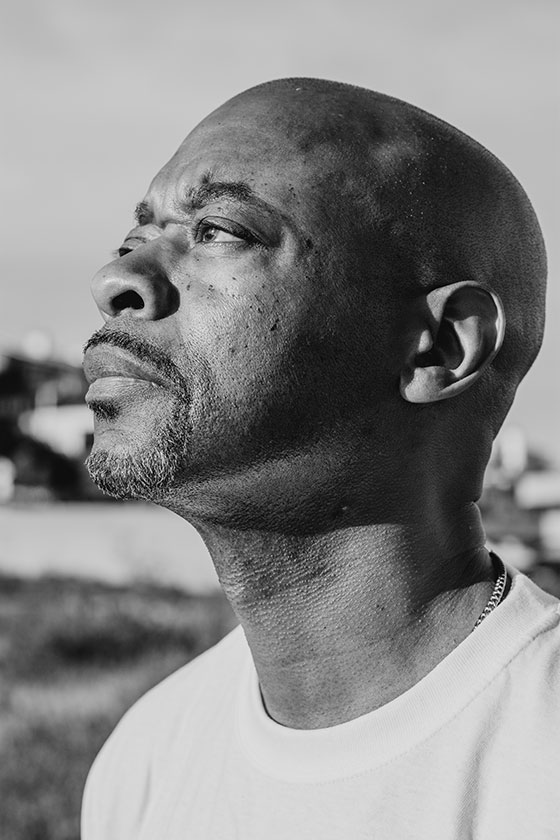
'I saw who God was. I saw what God created me to be. And I realized that God wanted me to have good stuff, and I didn't have to hurt people to get it. That was the God I fell in love with.'
'NOT FOR THAT LIFE'
For Martin, coming to Christ meant he needed to break his gang affiliation—an act that often leads to violence and even death. Martin sought the counsel of another Christian prisoner who had been in a gang.
"Go and pray and tell God this is what you want to do," the man told Martin. "Pray for Him to give you His protection and favor, because it can go one of two ways."
Martin prayed and then called a meeting to express his newfound faith and desire to leave the gang. The gang members murmured for a few minutes as Martin's anxiety rose—and then someone spoke up.
"Hey, if this is what he wants to do, let him do it," the gang member said. "If he's serious about it, OK. If he's not serious about it, please have at him and make an example out of him."
Along with extreme accountability, Martin's new faith was characterized by a hunger to better himself. He observed other Christians participating in programs, attending church and Bible study, and learning new skills. He decided he would do the same.
Martin attended Prison Fellowship®-sponsored classes on parenting, finances, and boundaries. He also started working as an education clerk, grading papers and explaining assignments. When a member of Martin's former gang joined one of his classes, Martin quickly realized the man couldn't read or write. He took time daily to teach him to read. One day the man looked at him and said, "Martin, I understand. I see who you are now. I see why you left. You’re not for that life."
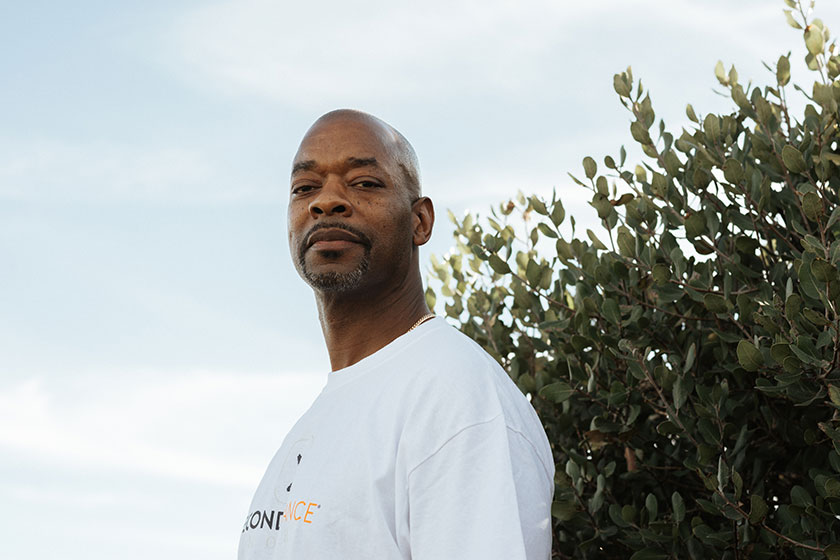
'Martin, I understand. I see who you are now. I see why you left. You're not for that life.'
BLESSED TO BE A BLESSING
Through Martin's jobs in prison, he learned the rewarding nature of hard work.
"The Lord was showing me He could provide for me," he said. "I don't need anything extravagant, but He was going to make sure my needs were met."
Through serving others, Martin also found the sense of belonging he had craved. People came for help with reading and writing, when they needed a listening ear, and even for legal advice. Despite the drastic racial divides in prison, Martin was friends with men of all races.
"This allowed me to see that God, the same way He cared for me, wants me to care for others," he explains. "He wasn't going to bless me except to make me a blessing—to show people there's something more than just walking around the prison yard. After I got my job, a bunch of people signed up for programs. A bunch of people started taking classes."
In 2000, Martin was transferred to the Richard J. Donovan Correctional Facility in San Diego, California. There he got a job in an optical lab, using machines to produce eyeglasses. He decided to study for the state optical certification, paying for the test himself and passing with flying colors.
Close to the end of his time served, Martin enrolled in TUMI, an intensive biblical studies course offered by Prison Fellowship that equips prisoners to become Christian leaders.
"Whatever God is calling you to, you're going to be equipped [through TUMI] to be used in ministry," Martin says. "You learn principles of study and time management. You learn how to set and accomplish goals. And you learn how to follow instructions. And these are all the building blocks you need for life and ministry."
'God wasn't going to bless me except to make me a blessing.'
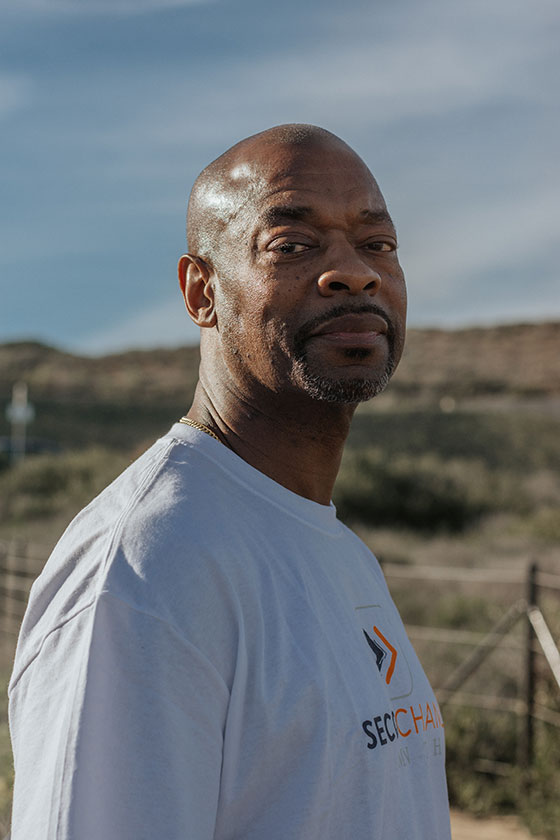
WHY SECOND CHANCES?
People with a criminal record face more than 44,000 legal barriers to reentry. These impact almost all areas of life: education, housing, employment, voting, and more. Because 1 in 3 Americans has a criminal record, the effect of these challenges is far-reaching. Prison Fellowship is passionate about raising awareness of reentry barriers and unlocking second chances for men and women with a criminal record.
PATIENCE THAT PAYS OFF
Martin was released in 2017 after 22 years of incarceration, receiving early parole due to his lack of disciplinary infractions. Eager to jump into a new life, he studied bus routes and schedules, choosing businesses where he could apply for employment. He even took computer classes to help catch up on all the technological advances he had missed. But due to a space issue, Martin was switched at the last minute into a much stricter reentry program at a facility for people who had struggled with addiction, which Martin had not. He had to spend seven months taking classes before he could seek a job.
"It taught me patience," he says. "The Lord ministered to me during that time. And I appreciate it now, the time that I had."
After completing the program, Martin landed a job as an interior and exterior painter. He started attending Pillar of Fire, a San Diego church pastored by a friend he had met in prison. Martin would eventually become a co-pastor at Pillar of Fire, and he still serves in that role today.
Martin never forgot Linda, whom he broke up with when he went to prison. Linda married someone else, and so did he. But 25 years later—after both had gotten divorced—they reconnected and gave their relationship a second chance.
"From the first 'hey' of that first conversation, I knew she was still the only one for me," Martin says. This time, the timing was right. They were married in 2019, and Martin says the match was worth the wait. "Linda is my biggest cheerleader and my best friend. She's imperfectly perfect, and she's the best part of me."
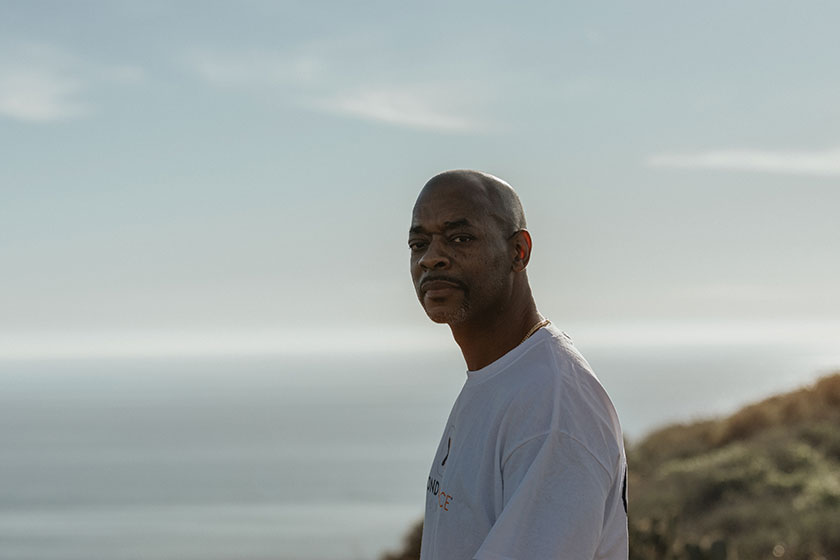
'The Lord ministered to me during that time. And I appreciate it now, the time that I had.'
A SECOND CHANCE
Martin was grateful for his job as a painter, but after a while, he wanted to pursue what he had trained for. Unfortunately, the path wasn't as straight as it might have been.
Martin applied to the California Board of Optometry for a license to practice opticianry, the making and dispensing of glasses and contact lenses. He was denied based on his felony conviction. But then Martin received a surprising phone call: A member of the board of optometry wanted him to know that he could appeal the decision if he wanted to.
"I said, 'Hey, if my denial was based on my criminal background, that's not going to go away. I don't want to waste your time with an appeal,'" Martin recalls. But the man told him about a case similar to Martin's in which a former prisoner with a lengthy sentence—who was thriving in the community and had worked in the optical field prior to licensing—was granted a license as the result of an appeal.
Encouraged, Martin appealed—and his request was granted. He is grateful for the second chance he received.
"Sometimes people get off on the wrong foot," he says. "And sometimes people like me make decidedly wrong choices. How amazing it is that we're allowed an opportunity for a do-over."
Martin took a job at a lab, and when his employer saw the extent of his skills, he was promoted to lab manager. Then he was recruited by another company where he became an optical consultant, working directly with doctors to determine the best course of treatment for patients.
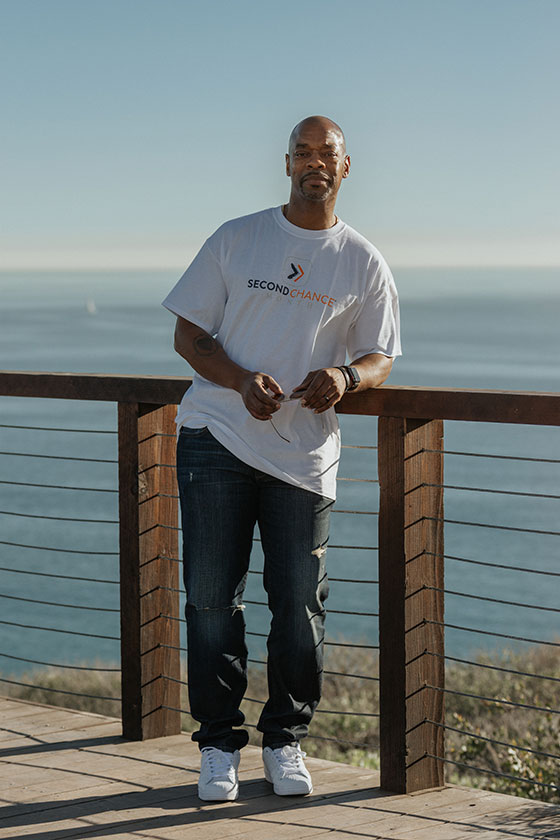
'Sometimes people get off on the wrong foot. And sometimes people like me make decidedly wrong choices. How amazing it is that we're allowed an opportunity for a do-over.'
HINDSIGHT IS 20/20
As much as Martin enjoyed his career, his truest sense of fulfillment came from the work he did at Pillar of Fire, and he wished for a way to do ministry full-time. Then he received a call from a friend at Prison Fellowship, asking if he would consider a job as a field director. After much prayer, he joined Prison Fellowship in August 2021.
As a field director, Martin oversees six large prisons. Martin works on providing enriching programming—including Prison Fellowship Academy® classes—in every prison he manages.
Martin loves interacting with men and women behind bars—including two facilities where he was once incarcerated.
"When I go to Donovan, I can literally tell them I used to live in building 13," Martin says. "I hope I can show men and women, 'Hey, even though you're in this situation now, that's not the end of it. There are some great things that God can and will do if you allow Him.'"
Martin also treasures the opportunity to collect applications for Angel Tree® Christmas, which helps incarcerated parents stay connected with their children through the delivery of a gift and a personal message. He sent his own daughter gifts through Angel Tree for many years. But the years apart took a toll, and Martin says he is thankful that they can now slowly build a relationship as adults.
When he looks back at the past—and at his present-day life—Martin is full of gratitude for second chances.
"People say hindsight is 20/20," he says. "How great to be able to take all the mistakes from the past and then start a new life, knowing how you fell off in the past and being able to build on that to do something better. Second chances are amazing."
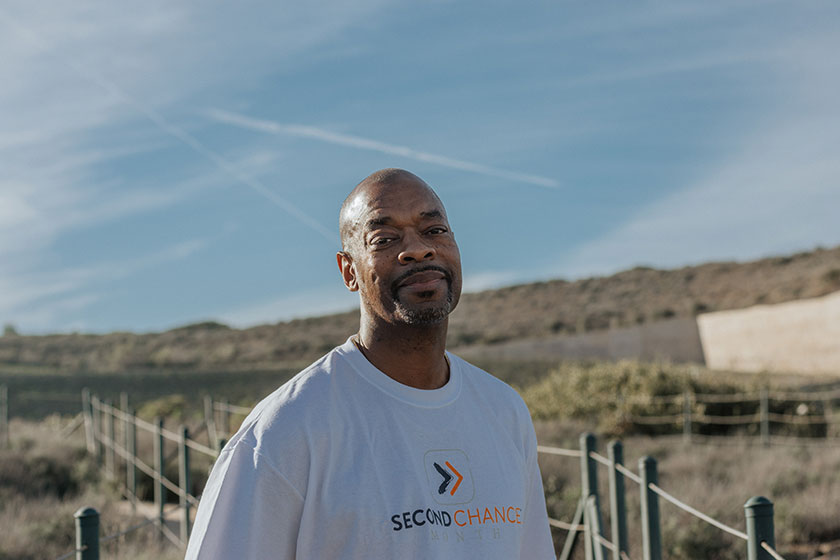
'When I go to Donovan, I can literally tell them I used to live in building 13. I hope I can show men and women, 'Hey, even though you're in this situation now ... There are some great things that God can and will do if you allow Him.'